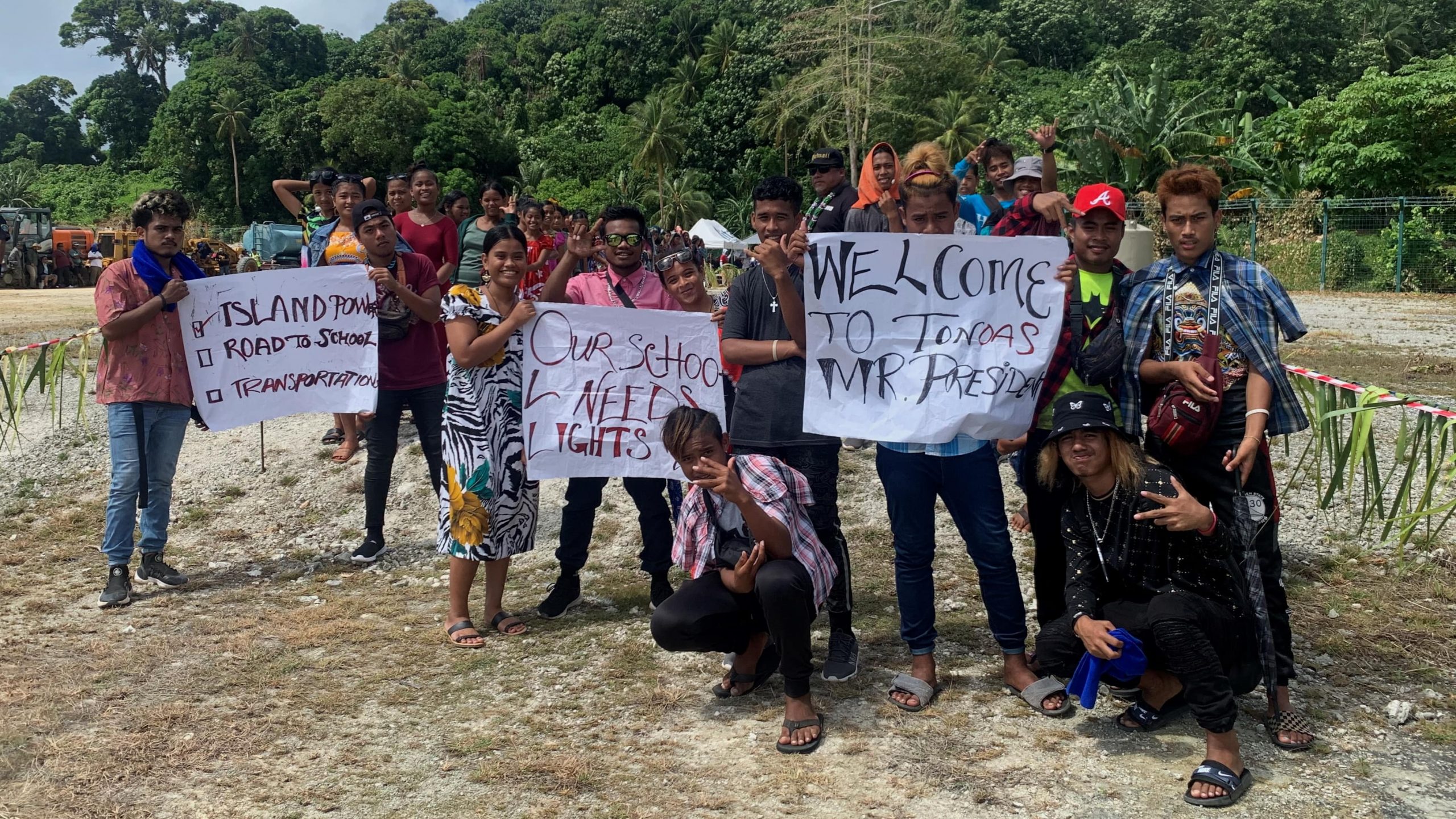Approximately 2 in every 3 people in the Federated States of Micronesia lack access to electricity. As it stands, the country’s Chuuk State has the lowest access to power in the Pacific region.
The challenges to accessing power in communities across the FSM is caused by various barriers such as the cost of fossil fuels, predominantly diesel, for power supply; the impact disasters like typhoons cause to energy infrastructure; and the geography of the country that is spread across 2.6million sq. kilometres of ocean space accounting for the country’s exclusive economic zone.
These challenges of access to energy also tend to be more acute in remote communities and isolated areas highlighting the urban and rural divide that perpetuates barriers to reliable energy sources.
The FSM itself consists of 607 small islands with a total land mass of only 702 sq. kilometres meaning the distance between islands and island States is vast. The 105,754 population of FSM are spread across four chains of island States namely Yap, Chuuk, Pohnpei and Kosrae.
Access to electricity is not uniformly enjoyed across these four states with Pohnpei and Kosrae above 94% highlighting the urban rural divide.
The State of Chuuk which makes up 47% of FSM’s population has the lowest access to energy at 30% access. To address this, the Government of the Federated States of Micronesia are prioritising the acceleration of power access to the remaining 70 percent of its population.
The FSM government recognised that access to energy is a key enabler to development of social and economic well-being by improving education, entertainment, health, comfort, productivity, and protection.
To support the increased access to power for the communities in Chuuk State the Pacific community (SPC) has joined with the FSM government to ensure that the journey to provide power, in a sustainable way, to the outer reaches of the States ensures isolated and rural populations have electricity prioritised.
Part of the approach is supported by the FSM’s Sustainable Energy Project implemented by the Pacific Community (SPC) and funded by the European Union. This project is currently working to boost access to relevant renewable energy in partnership with the FSM Government and the Chuuk Public Utility Corporation (CPUC).
In context, Chuuk State is made up of five regions with 40 municipalities covering some 200 villages and spanning 48 inhabited islands. The main island of Weno is the only municipality in Chuuk that is developed and is fully electrified for its 2,200 households. Following the recent completion of lighting Tonoas in January 2022, there are still 38 municipalities that broadly lack access to power.
An SPC feasibility study is underway for 10 sites to bring independent power through renewable sources. The bigger challenge will then be to secure additional support and funding to see through the electrification of all the 10 endorsed sites which is estimated to increase the electrification level of Chuuk to over 60%, lighting schools and health centres in the process.
The work required to electrify both Chuuk State and the rest of those without access to regular energy supply across the FSM requires collaborative efforts. For the State of Chuuk these efforts are continuing through the work of the Chuuk Public Utility Corporation (CPUC), Vital Group, National, State and Municipal government and development partners such as the Pacific Community (SPC), European Union, World Bank (WB) and Asia Development Bank.

The EUR 11.6 million FSM Sustainable Energy project represents the quest for sustainable energy solutions across the Federated States of Micronesia (FSM) and reflects the critical importance of collective and coordinated efforts to increase access to power for all communities in the FSM and more broadly across the Pacific. The project is funded by the European Union and implemented by the Pacific Community’s Micronesia Regional Office based in Pohnpei, FSM.
